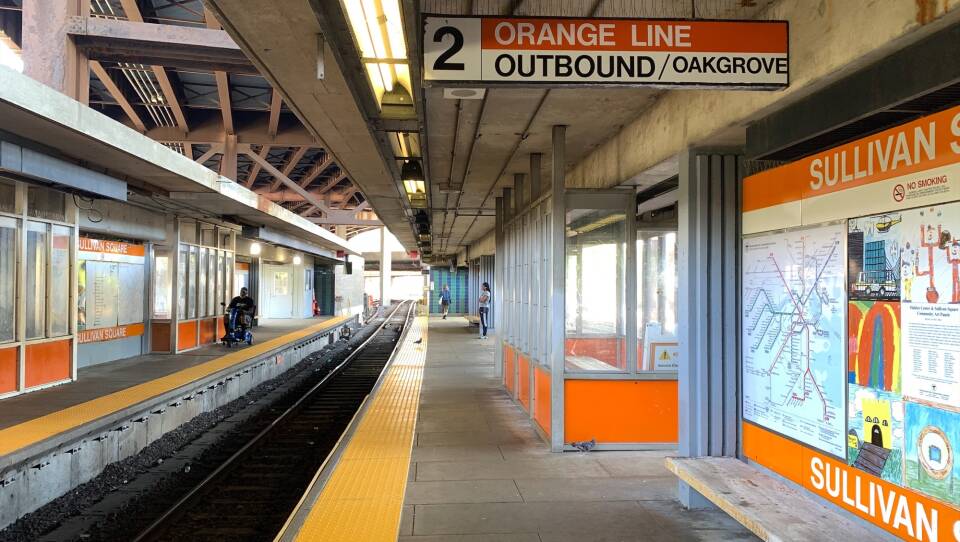In the final days of the Orange Line shutdown last month, cleaning crews descended into stations to power-wash, sweep, mop and pick up all the litter, dust and grime stations that had accrued over years of heavy use.
“Downtown Crossing definitely was one of our biggest logistical challenges, but I think we've seen the best results,” said Latarsha Thomas, the MBTA’s deputy director of station support and facility maintenance on Morning Edition. “It's in our core area, so it has the highest traffic and we have a lot of litter. There's just a lot of residual dirt and buildup that happens in these areas because of people coming in and out of the stations, really.”
Cleaning crews spent almost four days at Downtown Crossing during the shutdown, power-washing and cleaning the station until it looked shiny and smelled clean. There were no unusual products or new cleaners, Thomas said — crews just had time to be more thorough.
Their most powerful tool was a backpack-mounted power-washer, which allowed workers to hose down hard-to-reach areas.
“We use equipment called the Hydroshot, which is like a portable backpack type of power washer that logistically lets us to get into stairwells and little detailed areas,” Thomas said.
Maintenance crews also worked on some facilities issues that were not part of the MBTA’s core shutdown projects: Broken bricks, worn-down stairs, dulled paint and faded signage.
“We addressed tripping hazards up and down the Orange Line by making repairs to stairs, making repairs to bricks, and replacing some tactile edges,” said A.J. Tanner, an MBTA project manager. “We also did painting and signage and wayfinding improvements throughout the Orange Line.”
The MBTA has not announced any plans to shut down a full line again. But its leaders have announced smaller-scale shutdowns on the Red and Green Lines, and facilities workers will likely try to use those, too, as opportunities for additional cleaning and maintenance projects.
“One of the big takeaways was having the opportunity to piggyback off this,” said Joe Pavao, the MBTA’s acting chief engineer. “It's not an opportunity that we have often, not with this order of magnitude for the work that was done. … It gives us a much bigger window of opportunity where we're not impacting customers. We can actually get into the pits, on the tracks, pick up all the trash and do the right level of cleaning that we should be doing.”









